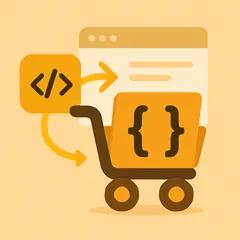Shopify Store Management Apps
Shopify store management apps are critical for online store owners looking to streamline daily operations and maximize productivity. These apps cover a range of functionalities, including inventory tracking, order processing, workflow automation, and customer management. By integrating these tools, merchants can reduce manual tasks and focus on growing their business efficiently.
Why should you use store management apps for Shopify?
Store management apps help simplify complex operational processes, ensuring that your store runs smoothly without unnecessary delays or errors. They save time, reduce human error, and offer insights that improve decision-making.
Best Shopify Management Tools
Choosing the best Shopify management tools can transform how your store operates. The right apps offer features such as multi-channel integration, inventory synchronization, and comprehensive analytics. These tools are designed to support scaling operations, making them essential for stores experiencing growth or looking to optimize existing processes.
What should you look for in a management tool?
Key features to consider include ease of use, seamless integration with Shopify, automated workflows, and data-driven insights to guide strategic decisions.
Shopify Inventory Management Apps
Effective Shopify inventory management apps keep your store’s stock organized and updated in real-time. This prevents overselling, minimizes stockouts, and optimizes your supply chain, making inventory control seamless and hassle-free.
Why is inventory management crucial for Shopify stores?
Proper inventory management ensures that products are always available, helping to improve customer satisfaction and avoid lost sales. It also aids in maintaining an efficient workflow, reducing manual labor and saving time.
Shopify Order Tracking Apps
Shopify order tracking apps provide transparency to both store owners and customers. They allow for real-time updates on order status, ensuring that customers can track their purchases and that store owners stay informed about the fulfillment process.
How do order tracking apps benefit your store?
These apps reduce the number of customer inquiries regarding order statuses and build trust by providing clear communication. They help automate the notification process, enhancing the post-purchase experience.
Shopify Workflow Automation Apps
Automating repetitive tasks with Shopify workflow automation apps can drastically improve your store’s efficiency. These apps handle tasks such as order processing, notifications, and customer support tickets without manual intervention.
What are the benefits of workflow automation in Shopify?
Automation minimizes the chance of human error and allows store owners to allocate resources to more strategic tasks. It speeds up processes and ensures consistent customer service.
Pros and Cons of Using Shopify Store Management Apps
Pros:
• Operational Efficiency: Reduces time spent on manual tasks and streamlines store management.
• Error Reduction: Automation and tracking apps minimize human error and increase accuracy.
• Scalability: Supports growth by enabling better resource management and process scaling.
• Customer Satisfaction: Real-time updates and seamless processes lead to better customer experiences.
Cons:
• Costs: Some apps come with premium subscriptions that may be a financial commitment for smaller stores.
• Learning Curve: Advanced apps may require time to fully understand and implement.
• Integration Issues: Certain apps may not work well with existing systems or may slow down site performance.
FAQs:
Why should you install store management apps for your Shopify store?
Installing these apps simplifies day-to-day operations, improves accuracy, and ensures a smoother shopping experience for customers, making them an essential part of modern e-commerce.
What types of store management apps are the most valuable?
Look for apps that offer inventory management, order tracking, and automated workflow processes, as these directly impact efficiency and customer satisfaction.


















